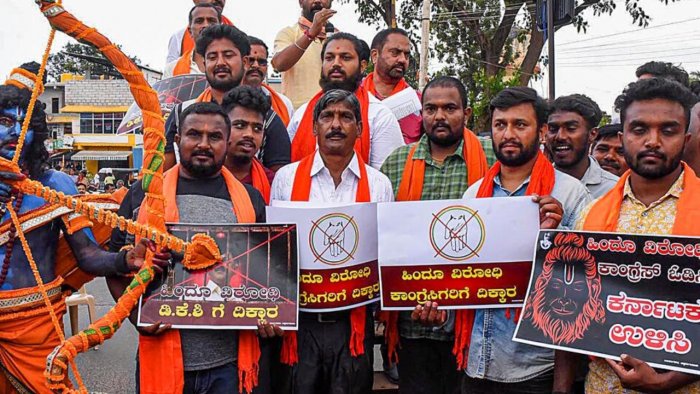The Congress was able to increase its vote share in the state by around 5 per cent. The party secured 42.9 per cent of the votes in 2023, as compared to 38.4 per cent in 2018. In the 2018 Assembly Elections, Congress won only 80 seats while in the 2023 elections, it crossed the majority mark with 135 seats. The party registered its strongest performance in rural and semi-rural constituencies, although its vote share increased across all regions, including urban and semi-urban areas as compared to the last Assembly elections.
The party was also able to double its share in Lingayat-dominated regions, winning 42 out of the 65 seats dominated by the Lingayat community, as compared to the 20 it won in 2018.
One of the major reasons for the Congress’s victory in the state wascan be attributed to the fact that the party’s focused on local issues, while the BJP focused its campaign on national issues. Corruption was a major issue on the voters’ minds as the term of the incumbent BJP government was marred with a slew of large scale corruption allegations. The INC used the “40% sarkar” jibe against the BJP government at almost every public rally and roadshow, claiming that ministers and government officials across the state demand a 40 per cent “commision” from contractors.
The party also focused on the five guarantees it promised in its election manifesto, which included Gruha Jyothi, Gruha Lakshmi, Anna Bhagya, Yuva Nidhi and Shakti. Its freebie strategy included five major guarantees of Rs 2,000 per month to every woman head of a family; free bus passes for all women; Rs 3,000 for graduates and Rs 1,500 for diploma holders as unemployment monthly payment; 10 kilos of rice; and 200 units of free power to households, which played well with the voters of the state.
In addition to this, the party also criticized the BJP’s decision to remove the 4 per cent reservation for Muslims in the state, and said it would reinstate the same if voted to power. The party also promised to increase reservation for Schedule Caste from 15 to 17 per cent, and for Schedule Tribes from 3 per cent to 7 per cent. Similarly, the party also promised to restore minority reservation of 4 per cent and increase reservations for Lingayat, Vokkaliggas and other communities.
Political analysts also state that Rahul Gandhi’s Bharat Jodo Yatra, which had one of its longest legs in Karnataka, covering 511 kilometeres covering seven districts and 20 Assembly constituencies in 21 days, also helped the party.
The yatra played a key role in mobilizing the party’s cadre, while also helping Gandhi establish a connection with both voters and party workers. Analysts state that Gandhi refrained from his usual anti-Modi rhetoric and instead focused on interacting with people and understanding their issues on the ground, both of which played in the party’s favour.
Another major reason that, which can not be ignored is that the high level of anti-incumbency which also worked in the favour of the Congress. No incumbent party in the state has able to continue ruling in the past two decades, and this trend also continued in the 2023 elections. The BJP continued to fight the election on the basis of national issues, which did not work out in its favour.

















